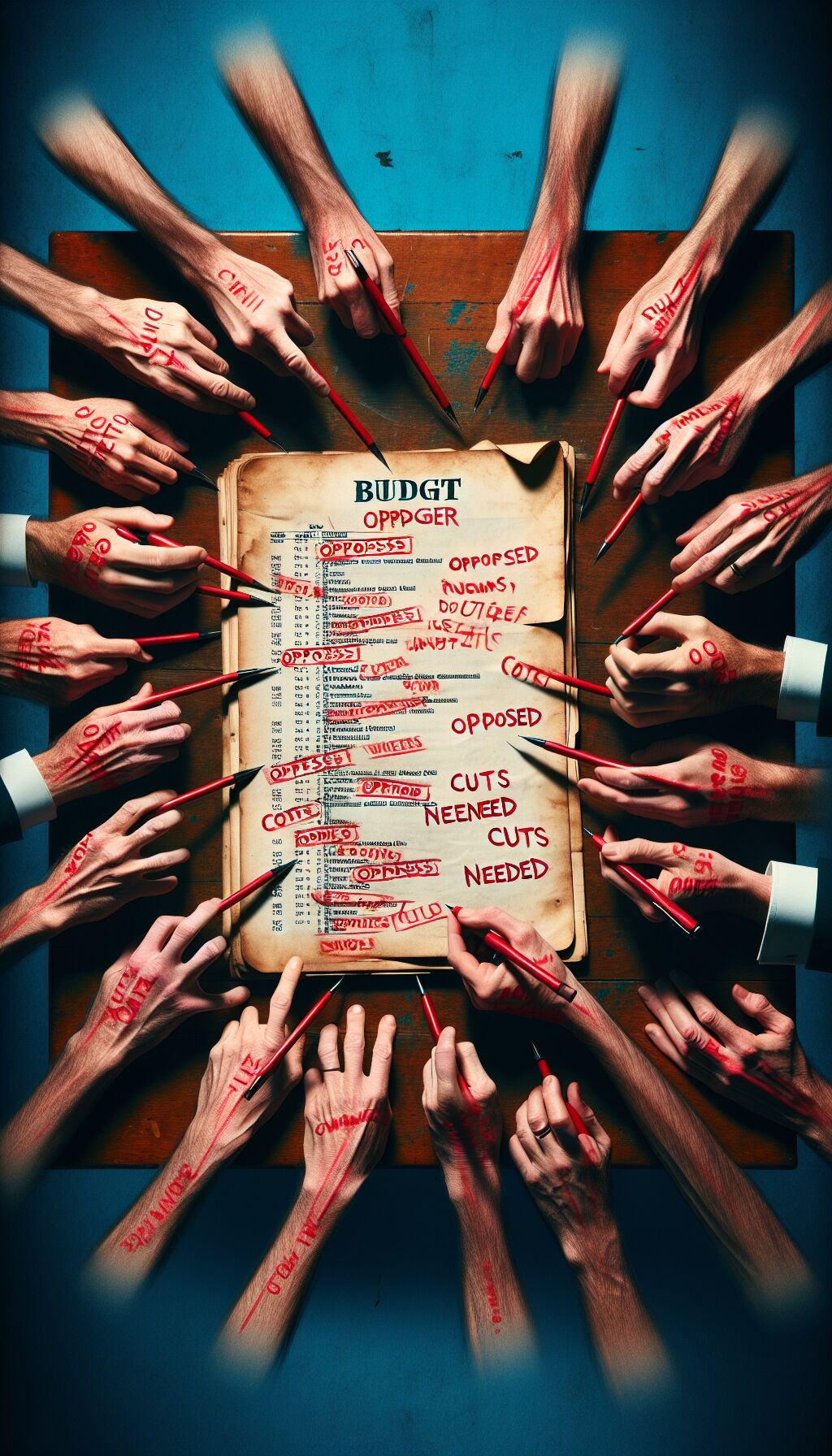House Republicans’ Budget Reconciliation Bill Faces Turbulence
In a significant political development, House Republicans are grappling with potential setbacks to their ambitious budget reconciliation bill, originally set for a vote on Tuesday. At least two GOP lawmakers have voiced their opposition, casting uncertainty over the passage of a bill that aligns with President Donald Trump‘s key priorities.
Key Issues at Stake
The proposed legislation focuses on essential areas such as border security, defense spending, tax reforms, and energy policy. However, with the GOP’s tenuous majority in the House, Speaker Mike Johnson, R-La., can only afford one dissenting vote to proceed on party lines, provided all Democrats are present.
Republican Defectors and Their Concerns
Rep. Tim Burchett, R-Tenn., publicly announced his opposition to the bill on Monday, just a day after Rep. Victoria Spartz, R-Ind., expressed similar reservations. Both lawmakers are pushing for assurances that Congress will seriously tackle the issue of government overspending.
Burchett stated, “I would like to see a commitment that we’re going to go after [spending cuts]. When we say we’re decreasing the rate of growth, we’re still growing. And again, can we not just go back to pre-COVID spending levels?”
Spartz is expected to meet with Speaker Johnson to discuss her concerns, further indicating a lack of consensus among GOP members.
Wait-and-See Approach from Other GOP Lawmakers
In addition to Burchett and Spartz, a contingent of GOP representatives from less securely Republican districts remains undecided. These lawmakers are particularly wary of proposed cuts to Medicaid and other federal programs that would fund Trump’s initiatives. Rep. Nicole Malliotakis, R-N.Y., revealed that “somewhere between six and 10” House Republicans are seeking clarity on where the spending cuts will be implemented.
Malliotakis emphasized her constituents’ vulnerability, stating, “If I don’t get answers, I’m not going to vote for it. But if I can get some clarity and assurances, then you know, we’re moving a little bit more toward the ‘yes’ column.”
Speaker Johnson’s Challenges
With the clock ticking, Speaker Johnson finds himself in a precarious position. He must address the growing concerns of party members while navigating the complexities of a divided caucus. Even among those in attendance at his recent meetings, such as Rep. Juan Ciscomani, R-Ariz., there were no firm commitments to support the bill.
Rep. Ciscomani remarked, “It was helpful,” but declined to affirm his support entirely. Many Republicans, including Malliotakis and Rep. Tony Gonzales, R-Texas, also left the meeting without a definitive decision.
The Broader Implications of the Bill
As it stands, the reconciliation bill aims to significantly boost spending on border security, the judiciary, and defense by approximately 0 billion. In contrast, it seeks to offset this expenditure with between .5 trillion to trillion in spending cuts elsewhere.
The legislation also proposes extending key provisions of Trump’s 2017 Tax Cuts and Jobs Act (TCJA), which is set to expire at year-end, with a financial impact of around .5 trillion.
The Reconciliation Process Explained
Utilizing the budget reconciliation process allows Republicans to push through fiscal legislation without the need for bipartisan support. This mechanism requires only a simple majority for passage in both the House and Senate, making it a potent tool for the ruling party. In contrast, most measures in the Senate require a two-thirds majority to advance, underscoring the advantages for the party with a majority.
Conclusion: A Crossroad for House Republicans
As the House prepares for the upcoming vote, the fate of the reconciliation bill hangs in the balance. With dissenting voices within the GOP and the ongoing debate over critical issues like government spending and welfare reforms, the coming days will be pivotal. For Speaker Johnson, the challenge lies in uniting his party and securing the necessary votes while addressing the concerns of those who remain undecided. The outcome of this bill could set the tone for the legislative agenda as the Republicans seek to align their policies with Trump’s vision.










